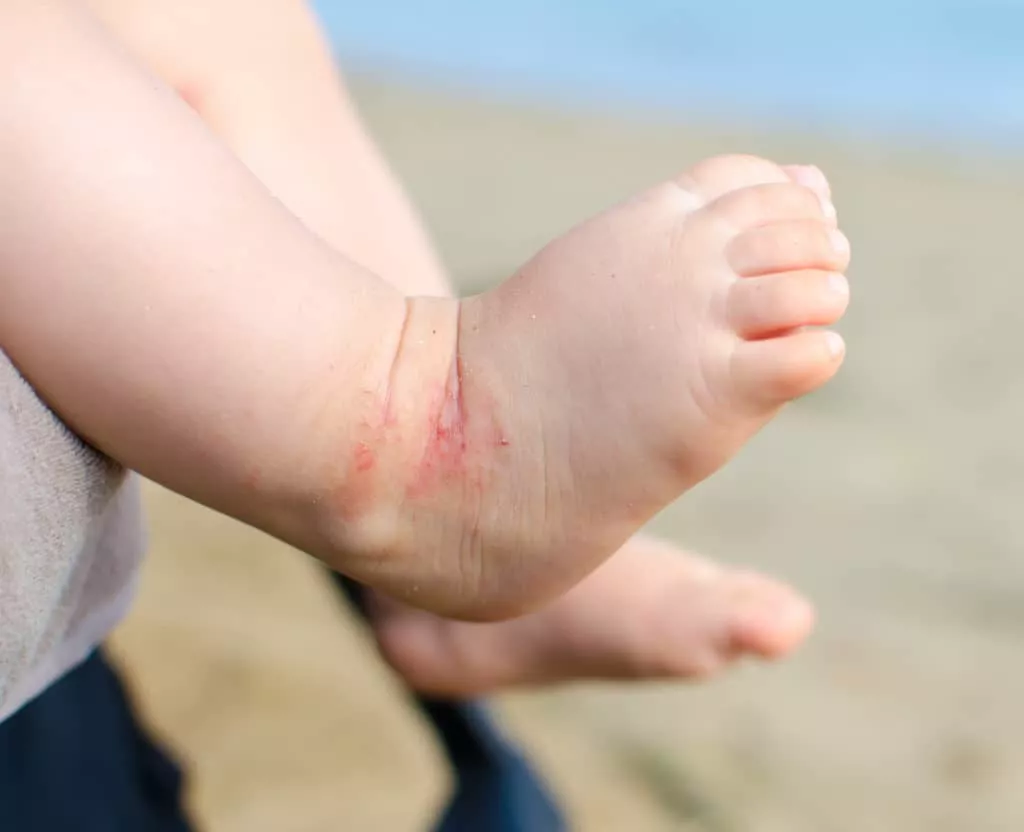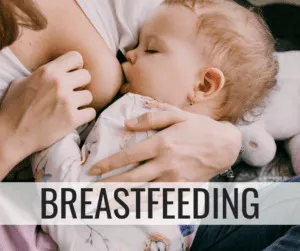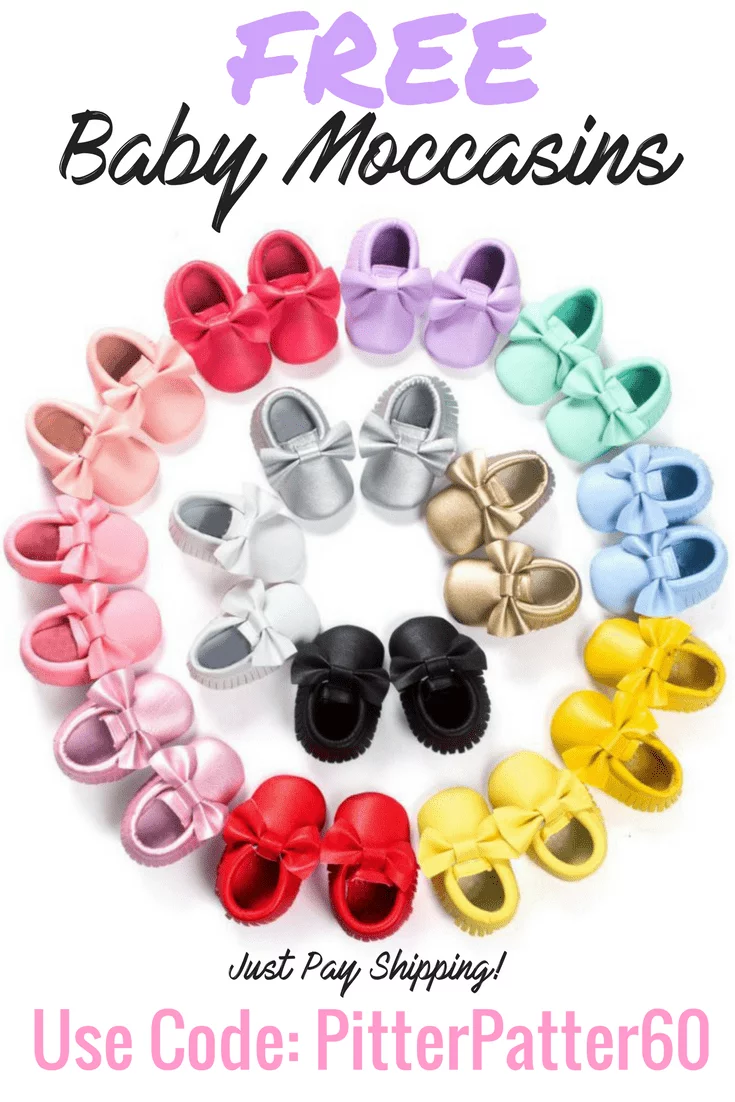
Baby Eczema: Everything Moms Need to Know About Causes and Remedies
Perhaps it’s your first time learning about eczema or you have just started to see some symptoms on your baby’s precious skin. You might see the red patches and your sweet child picking away at them wondering what you can do to help them. Don’t panic, you are not alone! In fact, it’s reported that 10% to 20% of infants in the U.S. suffer from the condition. Today we are going to look into how eczema can affect your baby and what you can do to help them.
What Is Eczema?
Eczema can present itself in various forms, but one of the most common types is known as atopic dermatitis. This is a rash that develops on the skin and makes the affected area itchy and red. Without proper care the condition can worsen, causing the skin to become rough, scaley, cracked, or leathery.
Causes of Eczema
While there is no specific cause known for eczema, it is known to be common in children who have had a family history of it. Various allergens or irritants are also known to cause rash flare-ups. Triggers will be different for each child–for some heat can cause symptoms to worsen, others may be sensitive to certain types of fabrics, soaps, perfumes, or foods. Some adults have seen improvement in their condition by cutting out dairy and gluten products from their diet. If you are breastfeeding your baby, it is possible that a healthy change in your eating could help your baby’s eczema, but before making any drastic changes in your diet make sure toconsult witha trusted health care professional.
Tips to Care for Your Baby
To help soothe your baby, there are a few steps you can take to minimize discomfort and prevent flare-ups on your baby’s oh-so-delicate skin. You will want to inquire with your child’s pediatrician to see if any medical treatment will be necessary, such as medicated cream. In the meantime however, here are some of our best tips to care for your little one at home.
Moisturize your baby often
Keeping your baby’s skin moistened is key to helping manage his or her condition. There are many moisturizers on the market specially made for babies with eczema, however you can also try unrefined african shea butter or petroleum jelly. The general recommendation is to moisturize your child twice a day, but depending on your child’s condition you may need to do it more frequently. A great way to moisturize your child is to give your baby a lukewarm bath (you will want to avoid using hot water). You can use just water or a moisturizing body wash made for babies with eczema or sensitive skin. After bathing, pat your baby with his or her towel leaving them just a little damp (do not rub their skin). Then apply a generous amount of vaseline or moisturizer of choice.
Avoid possible irritants
You will want to avoid any soaps, dyes, and perfumes that can trigger irritation on your baby’s skin. For example, go for laundry detergents which are free from such irritants. Generally the best detergents will be labeled “free and clear” or made for “sensitive skin.” Also, be careful about spraying perfume or hair products around your baby because they can irritate their skin. The best option is to use products on you and your baby which are hypoallergenic and fragrance-free. When shopping around for the right product, you also look out for washes and creams which are certified by the National Eczema Association (NEA).
Try an oatmeal bath
Colloidal Oatmeal is known to be a great treatment for babies with eczema because it soothes the skin and creates a protective barrier to help lock in moisture. Brands such as Aveeno sell it in a powdery form which can simply be swirled around in your baby’s bathtub. You can let your baby sit in the bath for about 15 minutes and then proceed with our tip from tip #1 above to moisturize your little one.
Keep your baby cool
Excessive heat can cause flare-ups on your baby. To prevent this, avoid over-layering your baby and make sure you keep the thermostat in your home at a comfortable temperature. If you live in a dry climate, a cool-mist humidifier is an excellent option to increase the humidity levels for your baby.
Dress your baby in breathable clothes made of natural fibers
Synthetic fibers such as polyester or nylon are not ideal for eczema-prone skin as they will trap sweat and irritate your baby. You don’t want to dress your baby in clothes that are going to trap too much heat and worsen their condition. Fibers such as cotton are far more friendly to sensitive skin as they are smooth and let the skin “breathe.” You can also use fabrics made from silk or linen. Wool is another fiber you will want to avoid because although it is natural, it is rough and can cause more irritation.
Keep your baby from scratching affected areas
Babies tend to scratch affected areas on their skin because the eczema makes their skin irritable. At times this will make the rash intensify or cause bleeding. You will want to avoid this as much as possible by cutting and filing your little one’s nails on a regular basis. Dressing your baby in long sleeves or using mittens will also help prevent scratching altogether by covering up any rashes or wounds.
Sources:
https://nationaleczema.org/eczema/children/
https://www.webmd.com/parenting/baby/baby-eczema-questions-answers#1
Meet The Author:

Hi I’m Jolie! I am a wife and stay at home “momprenuer.” I love writing about topics that encourage other women and add value to their lives. You can find me over at TheVirtualMama.com where I teach moms how to work from home, and my Christ-centered blog JolieJHarris.com!










